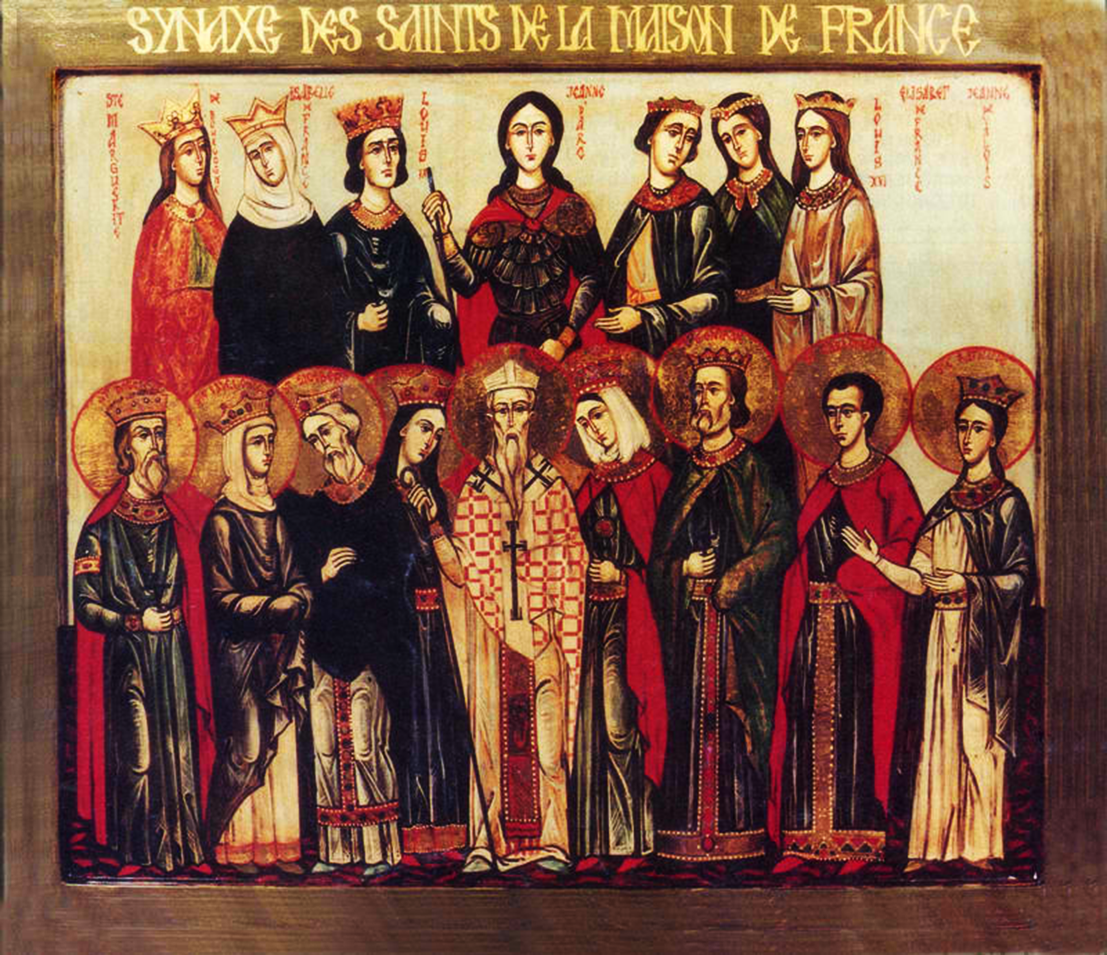Orthodox Saints of the Pre-Schism See of Rome

26th June
BABOLENUS of STAVELOT-MALMÉDY, a seventh century missionary bishop in the Low Countries (present-day Netherlands and Belgium). In later life St. Babolenus followed the example of his spiritual father, St. Remaclus (3rd September) and retired to the double monastery of Stavelot-Malmédy (in present-day Belgium). St. Babolenus reposed circa 700, at Stavelot-Malmédy, and was buried in the Abbey Church.
BARBOLENUS of FOSSÉS, a monk at the Abbey of SS. Peter and Paul of Luxeuil (abbaye Saint-Pierre et Saint-Paul de Luxeuil). St. Barbolenus went on to serve as the first Abbot of the Abbey of St. Peter of Fossé / abbaye Saint-Pierre-du-Fossé (later the Abbey of St. Maurus / abbaye de Saint-Maur) in the present-day Saint-Maur-des-Fossés suburb of Paris. St. Barbolenus reposed circa 677.
CORBICAN, (Eighth Century), an Irishman who lived as an anchorite in Frisia (present-day Netherlands). St. Corbican was known for tirelessly helping the local populus.
DEODATUS of NOLA, a deacon to St. Paulinus of Nola (22nd June), then Archpriest of Nola, and lastly successor of St. Paulinus to the See of Nola. St. Deodatus reposed in 473. His feast day is variously listed as either the 26th or 27th of June.
HERMOGIUS of TUY, the founder in 915 of the Monastery of Labrugia in Galicia (north-western Spain). St. Hermogius was captured by the Moors and taken to Córdoba (southern Spain), but was later freed. His nephew, St. Pelagius (vide infra), who was captured as well, was kept as a prisoner. St. Hermogius reposed circa 942.
JOHN and PAUL of ROME, (Date Unknown), two Martyrs who suffered in Rome.
MAXENTIUS (MAIXENT) of POITOU, a monk at a monastery in Poitou (west-central France), now called Saint-Maixent, where he later served as Abbot. He was held in high esteem by the local population, whom he protected from the invading barbarians. St. Maxentius reposed in 515.
PELAGIUS (PELAYO) of CÓRDOBA, a youth and nephew of St. Hermogius of Tuy (vide supra). St. Pelagius was captured by the Moors with his uncle, but was not freed with him. He was offered freedom and other rewards only if he would accept Islam. For three years he steadfastly refused to renounce the True Faith, finally he was tortured, which he endured for six hours before finally reposing in 925. His relics were translated to León (Spain) in 967, and Oviedo (Spain) in 985.
PERSEVERANDA (PECINNA, PEZAINE) of POITIERS, a holy virgin from Spain who, with her sisters Macrina and Columba, travelled to Poitiers (western France) where they founded a convent. While fleeing from a robber, circa 726, Perseveranda died at a place now called, Sainte-Pezaine, after her.
SALVIUS and SUPERIUS, Salvius was a bishop near Angouleme in France who was sent to Valenciennes (northern France) to enlighten the Flemish. A local noble took exception to his mission, and circa 768 murdered St. Salvius. He was hastily buried beneath a martyred companion. When the relics were discovered his anonymous companion was found first and thus called Superius (Above).
VIGILIUS of TRENT, a Roman noble who studied in Athens, and then settled, circa 380, in the area of Trent (north-eastern Italy). He was chosen by the locals to serve as the first Bishop of Trent in 387, and he more or less succeeded in uprooting paganism from his See. St. Vigilius was stoned to death in the nearby Val di Rendena for overturning a statue of Saturn, 405.
Prior to the Schism the Patriarchate of Rome was Orthodox, and fully in communion with the Orthodox Church. As Saint John of Shanghai and San Francisco +1966 said “The West was Orthodox for a thousand years, and her venerable Liturgy is far older than any of her heresies”.
Details of British Saints excerpted from Orthodox Saints of the British Isles.
Details of continental saints from these sources.
In many cases there are several spelling versions of the names of saints from the British Isles. I use the Oxford Dictionary of National Biography version as the primary version with the more prevalent version in parenthesis e.g. Ceadda (Chad) of Lichfield.
